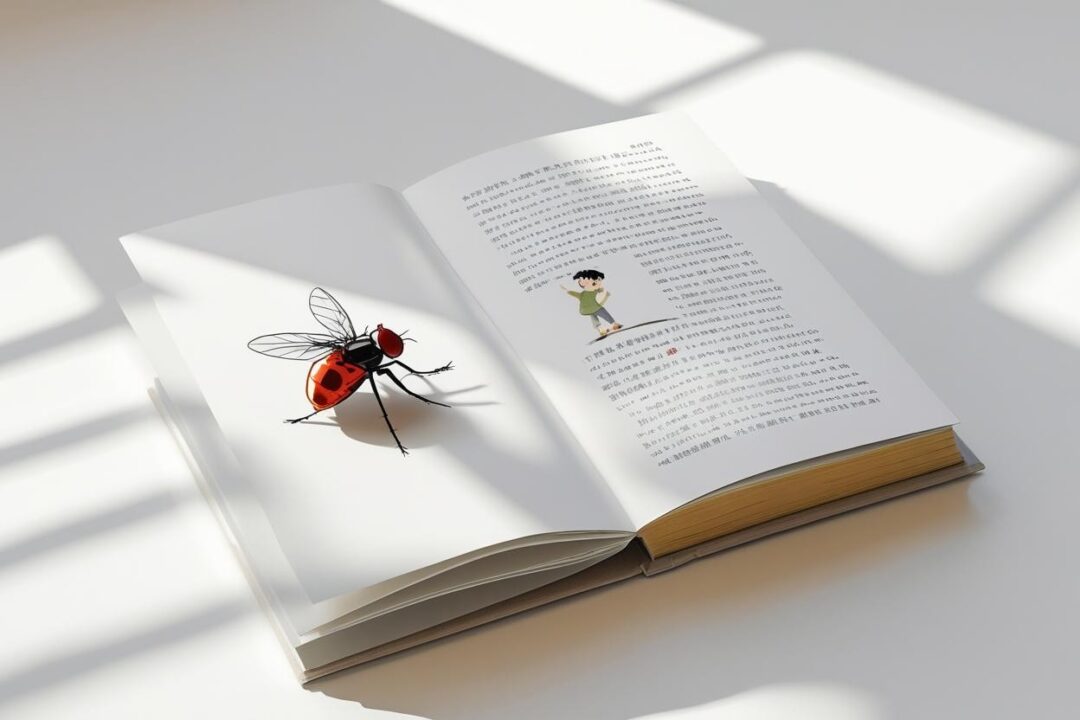E.B. White’s Charlotte’s Web has long been cherished as one of the greatest works in children’s literature. With its timeless story of friendship, love, and the inevitability of life and death, the book resonates with readers of all ages. It follows the heartwarming relationship between a pig named Wilbur and a spider named Charlotte, who helps him find a way to avoid being slaughtered by writing messages on her web. However, despite its widespread popularity, Charlotte’s Web has faced challenges and bans in schools and libraries across the United States. So, why is a beloved book like Charlotte’s Web banned, and what is the controversy surrounding it?
Overview of Charlotte’s Web
First published in 1952, Charlotte’s Web tells the story of Wilbur, a piglet who befriends Charlotte, a kind and wise spider. Wilbur is initially doomed to be slaughtered, but Charlotte’s efforts to save him lead her to write messages in her web, such as “Some Pig” and “Terrific.” As the novel progresses, Charlotte’s actions help Wilbur’s fate change, but the themes of mortality and compassion remain prevalent throughout.
At its core, Charlotte’s Web is a story of friendship, loyalty, and the circle of life. The themes explored are complex, touching on subjects like the value of life, loss, and the bonds that unite us, whether human or animal. Despite the book’s educational value and emotional depth, it has faced challenges over the years. Let’s examine the reasons why Charlotte’s Web has been banned or challenged and why such a beloved classic has sparked controversy.
The Controversy: Why Has Charlotte’s Web Been Banned?
Despite being one of the most beloved children’s books of all time, Charlotte’s Web has faced bans in various schools and libraries across the country. While it’s often regarded as a heartwarming tale, the book’s portrayal of life and death has led some to question whether it is appropriate for young readers.
Objection to the Depiction of Death in Charlotte’s Web
One of the primary reasons for the banning of Charlotte’s Web is its treatment of death. The book tackles the subject head-on, showing how Charlotte, after saving Wilbur’s life, eventually succumbs to old age and dies. This portrayal of death is not sugar-coated, and it presents young readers with the difficult reality that death is a natural part of life.
For some parents and educators, this depiction of death is considered inappropriate for children, especially those in elementary school. The idea of explaining mortality to children through the death of a beloved character can be a challenging conversation, and some may feel that this topic is too heavy for young minds. These objections are often grounded in the belief that children should not be exposed to such emotional themes until they are older, or until they can better process such concepts.
While the novel handles death gently, some argue that the portrayal of Charlotte’s death could cause unnecessary distress to young readers. This has led to the book being challenged or even removed from some school reading lists, particularly in communities where discussions about death are considered taboo for children.
Religious Objections
Another significant reason for the book’s banning is religious concerns. In certain conservative communities, religious objections have been raised due to the anthropomorphization of animals in Charlotte’s Web. The idea of animals taking on human-like characteristics — Charlotte is portrayed as highly intelligent, capable of communicating through writing, and even making sacrifices for Wilbur — has raised eyebrows in some religious circles. Some view this portrayal as undermining religious teachings about the natural order of things, especially concerning the roles of humans and animals.
Additionally, the theme of life after death — as reflected in the book’s portrayal of Charlotte’s death — has been a point of contention for some. While the book does not delve deeply into religious themes, the conversation about mortality and the possibility of an afterlife has led to concerns from religious parents and educators.
Fear of Animals in Unusual Roles
Charlotte’s Web is also controversial due to its anthropomorphized characters. Charlotte, the spider, is not just an ordinary animal; she is wise, articulate, and capable of making thoughtful decisions. This idea of animals taking human roles, especially the intellectual and emotional traits ascribed to Charlotte, has stirred up objections from those who believe it could confuse young readers or alter their understanding of the natural world.
For some, the notion of animals in unusual roles (such as Charlotte saving a pig’s life by writing in her web) is unsettling. These critics argue that it could create unrealistic expectations or disrespect towards animals. While Charlotte’s Web is undeniably a work of fiction, the portrayal of animals in human-like roles is a point of debate for those who prefer more traditional or realistic depictions of animals in children’s literature.
The Impact of Censorship on Charlotte’s Web and Children’s Literature
Despite the controversy, Charlotte’s Web continues to have a profound impact on children’s literature. While bans and censorship efforts may limit access to the book, its enduring popularity demonstrates the powerful effect it has had on readers and educators alike. The book’s ability to discuss tough topics like death, compassion, and the value of life has allowed it to remain an essential read for generations of children.
Censorship, however, can limit the conversations that are necessary to address important issues. Books like Charlotte’s Web play a vital role in opening discussions about difficult subjects, such as the nature of life and loss. These conversations are essential for helping children develop empathy, emotional intelligence, and resilience. Banning such books does a disservice to both children and educators who are trying to foster an open, thoughtful environment for learning.
Why Charlotte’s Web Still Matters
Although Charlotte’s Web has faced bans and challenges, it continues to resonate with readers of all ages. The book’s portrayal of friendship, compassion, and death offers readers an opportunity to process complex emotions and ideas. Its themes encourage readers to think about the world with more empathy, teaching the value of kindness, loyalty, and the inevitability of life’s cycles.
Charlotte’s Web has also sparked important conversations about representation and the treatment of animals. Charlotte’s selflessness and Wilbur’s innocence challenge readers to look beyond surface-level differences and understand that everyone, regardless of their situation, has intrinsic value.
By tackling sensitive topics with nuance and compassion, Charlotte’s Web encourages readers to embrace the complexity of life and death. It teaches children that it’s okay to ask tough questions and explore the world with curiosity and empathy.
Conclusion: The Power of Storytelling and the Need for Conversation
So, why is Charlotte’s Web banned? While the book’s portrayal of death, the anthropomorphization of animals, and the treatment of life after death may be unsettling to some, its central themes of friendship, loss, and personal growth are universal. The book provides children with a way to explore complex ideas in a safe and empathetic environment.
Ultimately, Charlotte’s Web serves as an important tool for starting conversations about death, friendship, and inclusion. The fact that it continues to spark discussion — both positive and negative — demonstrates the power of storytelling and the essential role that books like this play in shaping the way children understand the world around them.




